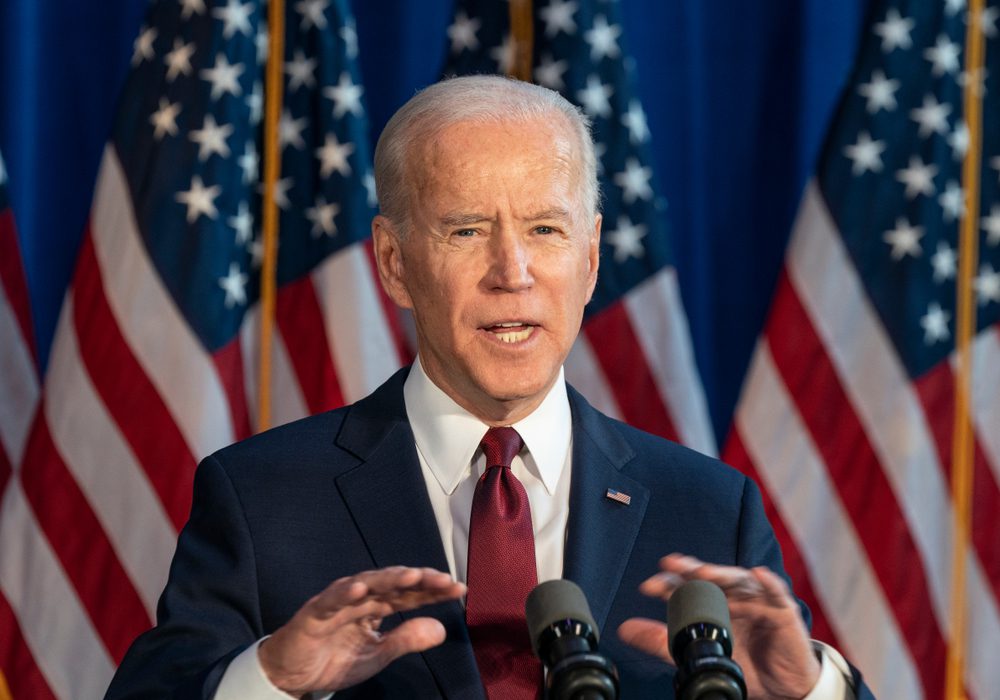Biden’s Grab-Bag Foreign Policy Speech

Yesterday the president delivered his first foreign policy address since taking office, and he chose to give it at the State Department. The location underscored Biden’s message that “diplomacy is back,” and the visit there afforded him to the opportunity to praise the work of Foreign Service Officers in an earlier set of remarks. The speech included the important announcement that the U.S. would halt its support for Saudi coalition “offensive operations” in Yemen, and it mentioned New START, the arms reduction treaty that had been due to expire today, and he noted that the U.S. and Russia had finalized the five-year extension of the treaty earlier this week.
On Yemen, Biden stated that the U.S. would cut off support to offensive operations, and he said that this included “relevant arms sales.” As I said yesterday, this is a good start and an important first step. The president mentioned the new Yemen envoy, Tim Lenderking, and said that the envoy will “work with the U.N. envoy and all parties of the conflict to push for a diplomatic resolution.” Biden emphasized the importance of diplomacy and humanitarian relief, and he said simply, “This war has to end.”
One of the main themes of the speech was the president’s emphasis on the importance of allies. He listed a number of allies, almost all of which were formal treaty allies, and he did not refer positively to any of the clients in the Middle East that are often mistaken for allies. The list was presumably not intended to be exhaustive, but it suggests that Biden puts more stock in genuine treaty allies than he does in other states.
Notably absent from the speech were any references to the nuclear deal or Iran policy as such, and there was likewise no discussion of ongoing U.S. wars except for our involvement in the war on Yemen. It may be that these issues were not addressed because the administration is still getting up to speed and filling out the relevant teams of officials, but it could also be that these omissions reflect a lack of urgency on the administration’s part. North Korea and Venezuela also went unmentioned.
The president also struck a confrontational tone with Russia, saying that “the days of the United States rolling over in the face of Russia’s aggressive actions…are over.” That is consistent with his rhetoric from the campaign, and it confirms earlier reports that the Biden administration has no interest in pursuing rapprochement with Moscow. The U.S. will cooperate with Russia narrowly on arms control, but otherwise we are in for several years of frosty and antagonistic relations. That is not so different from how U.S.-Russian relations were under the previous administration, but it suggests that we can expect this relationship to deteriorate further.
One of the odd things about Biden’s speech was that he kept saying that “America is back” in different ways. At one point, he said, “America cannot afford to be absent any longer on the world stage,” but the U.S. has hardly been absent for the past four years. The problem with much of his predecessor’s foreign policy was not absence, but rather destructive meddling. There are tens of millions of people that have been suffering under sweeping sanctions that would very much prefer it if the U.S. had been absent.
The speech does not seem to have been intended as a comprehensive statement of the administration’s foreign policy vision. It functioned more as a grab-bag of the things that the administration has already done along with a few general outlines of how Biden intends to operate. The speech will be remembered primarily for the Yemen announcement and the importance that the president placed on bringing the war there to an end.
Comments